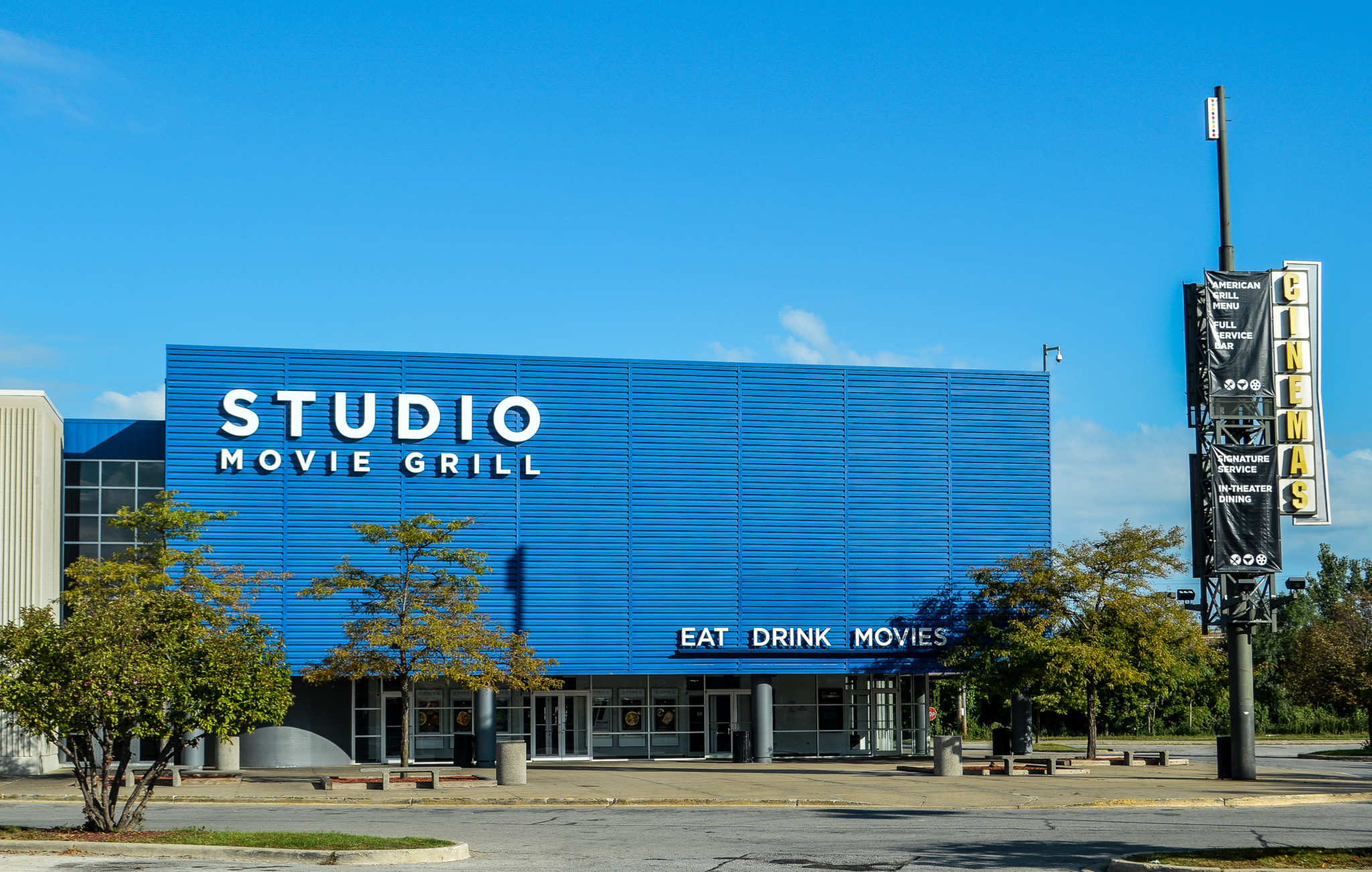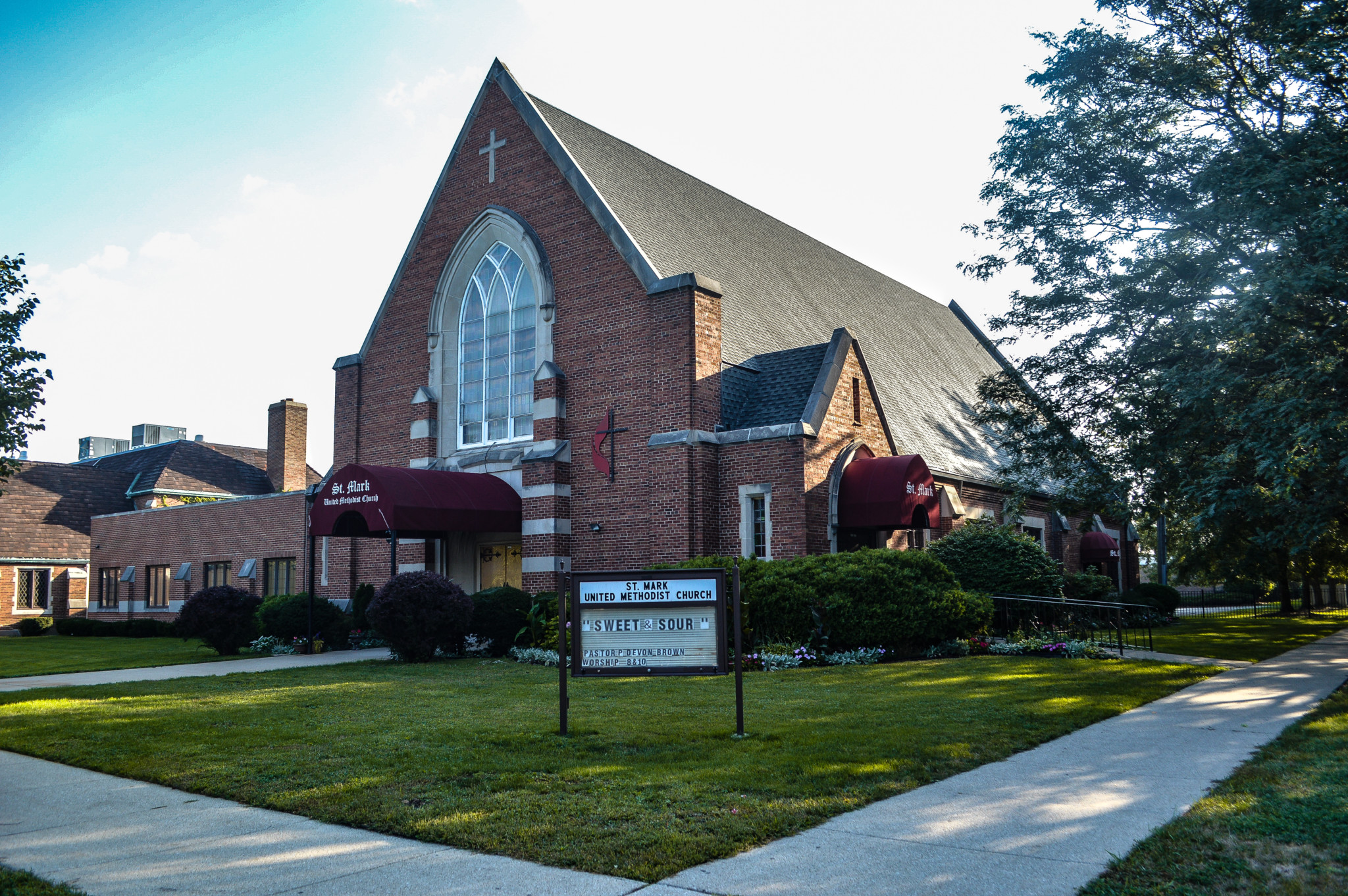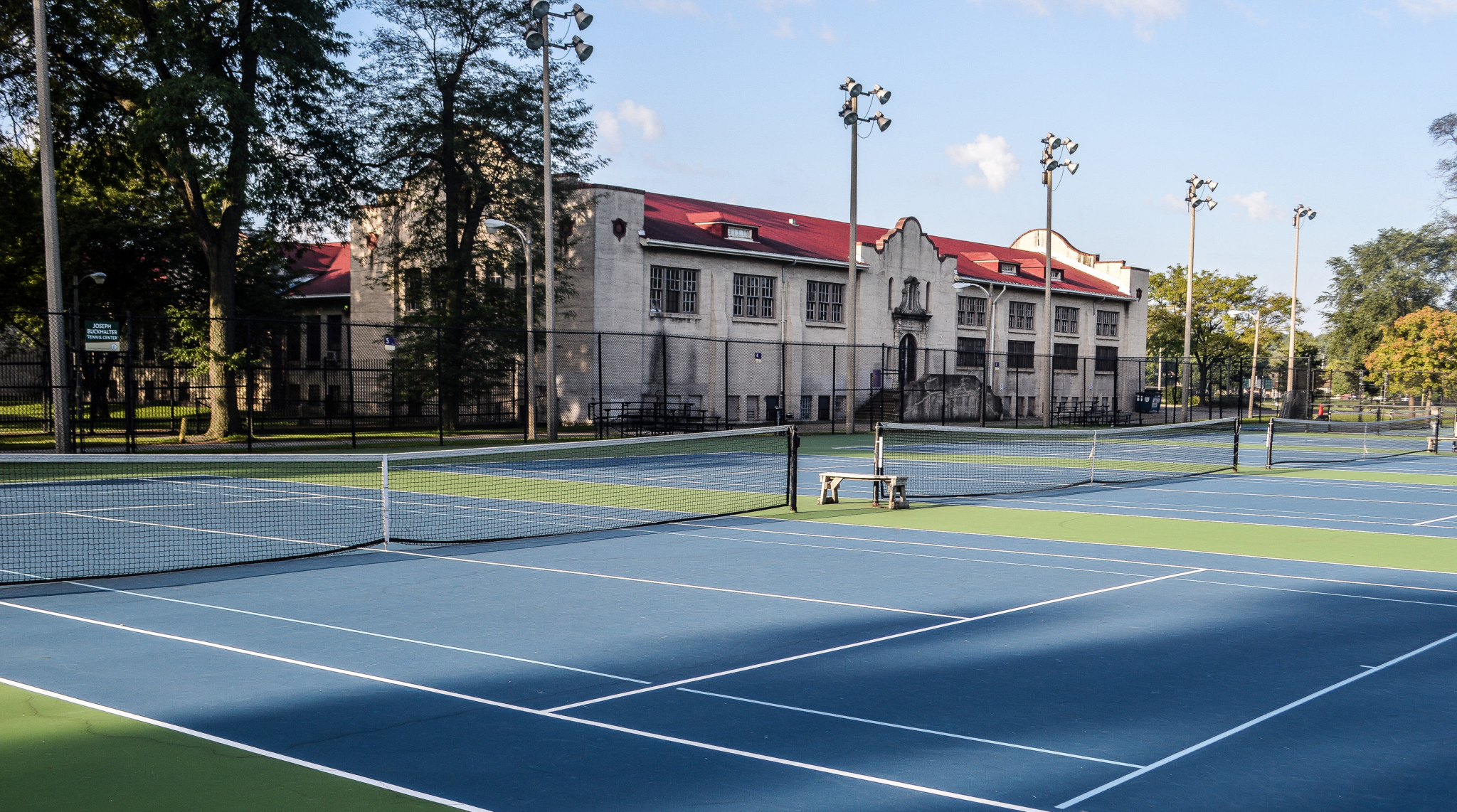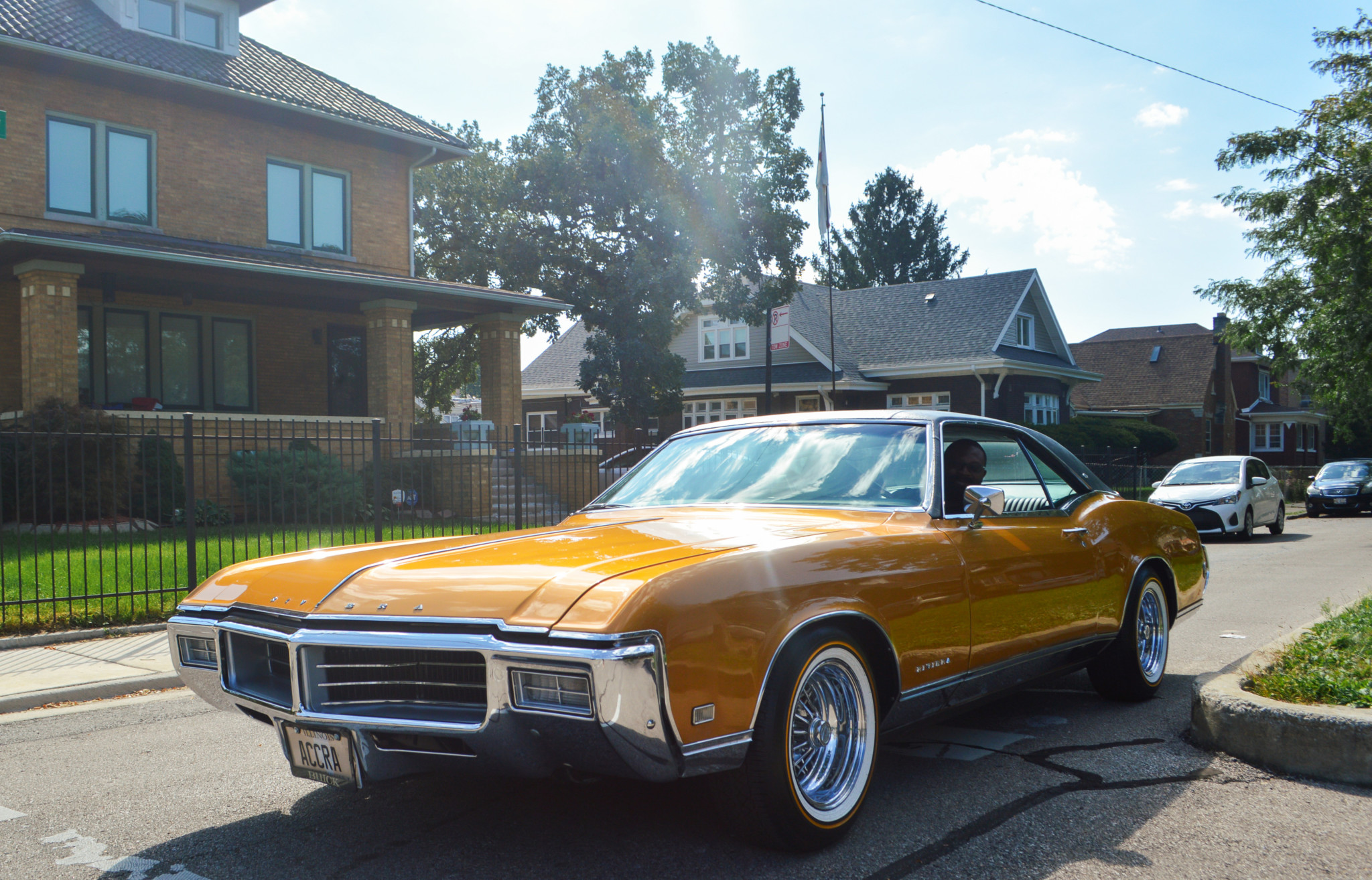- Best Movie Theater
- Best New Wraps
- Best Radio Station
- Best Activity Center for Seniors
- Best Historical Church
- Best Park Community
Bridget Vaughn is curious, a lover of ALL music genres, and a card-carrying AARP member. She is exploring her creative side and learning everything she can from the millennials. She drinks non-alcoholic beer, Kombucha and cinnamon tea.
As a native Chicagoan, a lifelong South Sider, and a Chatham resident for many years, I grew up not knowing the actual boundaries of the community. The boundary is not a perfect rectangle and resembles an abstract artist’s rendition of the United States. The area is broken up into four neighborhoods; Chatham, West Chatham, East Chatham, and West Chesterfield.
Growing up, Chatham was a Black mecca. It was a hustling and bustling community of mostly Black folks, proud to live a middle-class lifestyle. In Chatham, Black businesses thrived, including three banks: Seaway National Bank, Independence Bank, and Illinois-Service Federal and Loan Association.
The 75th and 79th Street corridors served as small Black-owned business havens. Residents didn’t have to go outside of their community for much of anything because they could easily walk. I vividly remember the grocery stores, pharmacies, doctors, dentists, real estate companies, accountants, morticians, florists, a gardening center, motels, skating rinks, bowling alleys, nightclubs, hair salons, photographers, restaurants, laundromats, dry cleaners, and clothing stores. Reggio’s frozen pizza is still produced in Chatham.
The Chatham neighborhood has seen its fair share of transitions. Population, demographic, and family wealth shifts have dramatically impacted the community. In 1930, 99.7 percent of the residents were white, with just ten Black residents. By 2000, the demographic had shifted dramatically to 98.3 percent Black and only 157 white residents.
Our shopping corridors on 87th and Cottage Grove and 87th and the Dan Ryan Expressway are fine, but for those of us who like Trader Joe’s, Mariano’s, and Whole Foods, we have to leave leave our community to shop. While Chatham can boast of having one Starbucks, it is woefully inconvenient. The community now struggles to maintain a strong small business corridor.
However, with access to the Red Line, Metra, and the 29, 3, and 4 buses, public transportation makes it convenient to get around the city. And gasoline is cheaper than in some other neighborhoods. And of the nine elementary schools in Chatham, three are top schools focused on educating and training the future leaders in every industry: Dixon Elementary School, McDade Classical School, and Lenart Regional Gifted Center.
The elevated focus on the criminal element in certain communities has not escaped Chatham. Know that what you hear in the news is not the full story of this community. As in most areas of the city, Chatham is filled with hardworking people who want the best for their families, follow the law, and are really good neighbors.
Best Movie Theater
Chatham Studio Movie Grill

If you are old Old School Chatham, when you think neighborhood Movie Theater, you automatically think of the old Rhodes Theater located on 79th Street. But when the vintage movie house closed in the 1980’s and was later demolished, Chatham was without a movie theater until 1997. That is when the late Donzell Starks of Inner City Entertainment, in a partnership with Cineplex Odeon, beat out Magic Johnson to win financial support from the city of Chicago to build three multiplexes on the South and West sides. The ICE Chatham 14 Theater on 87th Street, at the Dan Ryan, was the new South Side multiplex and the first movie theater in Chatham since the Rhodes. The theater became a welcomed addition to the neighborhood, maintaining a solid footing until business disputes and management changes ended its fifteen year run in 2012. There was a brief closure in 2012, more management changes and another brief closure in 2016.
All of that, like the Rhodes, is history now, and it’s onward to the future at 210 West 87th Street. New owners and a three million dollar renovation have turned the 65,186 square-foot theater, which sits across the parking lot from Home Depot, into Studio Movie Grill Chatham. The Dallas-based Studio Movie Grill brand is the vision of founder Brian Schultz, who wanted to bring a new ambience to the movie-going experience, along with adding a social responsibility component, in service to the communities his theaters call home. Studio Movie Grill strives to be a good neighbor and good citizen, with community outreach built into its mission statement.
Not only are newly released major motion pictures shown at SMG Chatham, the venue is accessible to local artists and filmmakers, and frequently screens smaller independent films and videos. The lobby studio space offers a sizable performance stage that can be easily transformed into a red carpet area for promotional photos, books signings, panel discussions, community forums and more.
The complete renovation added a full service kitchen and a full service bar (I recommend the crispy tempura Atlantic cod with coleslaw, spicy jalapeño tartar sauce and a nice Prosecco), plus a sleek lounge area comfortable for relaxing while waiting for movies or other entertainment to start.
Although Studio Movie Grill is not just a destination for moviegoers, make no mistake, the SMG movie experience is ultra-deluxe, offering custom luxury recliners, laser projection screens, and Q-SYS sound systems throughout. Each auditorium offers prompt, friendly-yet-amazingly-quiet food and beverage service available anytime during any screening from the touch of a button at each seat. As Venisha Johnson, who is in charge of events for SMG Midwest and East Coast, put it, there is no reason to have to go downtown to see a movie anymore, when there is everything you need at Studio Movie Grill—and the parking is free! (Nicole Bond)
Studio Movie Grill, 210 W. 87th St. Box office opens one hour before the first scheduled movie of the day and closes fifteen minutes after the start of the last scheduled show time. $6.50–$9.25. (773) 420-4475. studiomoviegrill.com
Best New Wraps
The Wrap Bar
Since opening a few months ago at 82nd & Cottage Grove, the Wrap Bar has enraptured customers with its affordable, substantial wraps. The crispy buffalo chicken balances its spice with a cool ranch; the chicken Caesar provides a sharp, anchovy-based kick. (This reporter has his eye on the salmon wrap for a next visit.) The eatery’s homemade chocolate cookies offer the perfect complement, though you may find yourself saving them for later. It’s the rare new restaurant that demands a quick return soon after your first visit, so you can, uh, wrap up trying everything on the menu. (Sam Stecklow)
The Wrap Bar. 8154 S. Cottage Grove Ave. Monday–Saturday, 10am–8pm; closed Sunday. (773) 633-2588
Best Radio Station
WVON 1690 AM
Best movie: Mahogany. Best actress: Diana Ross as Tracy Chambers. Best scene: Tracy Chambers’s South Side apartment, where from the transistor radio we hear the unforgettable WVON jingle and station ID, followed by the voice of legendary disk jockey E. Rodney Jones say, “Hi, it’s E. Rodney Jones comin’ your way from WVON the Mighty 1390! Chicagoland’s Black Giant!” right before Billy Dee Williams drops a hundred in nickels through the mail slot! Yassss! Iconic. Classic. And good.
The Black Giant has remained a constant since its beginning over half a century ago in April of 1963, as the Voice of the Negro, which the station’s call letters proclaimed. Originally the small 1000-watt station, then at 1450 on the AM radio dial, and the brainchild of Chess Records founders Leonard and Phil Chess, began as a way to showcase the best of Chicago’s radio talent. And showcase WVON did, first by assembling a group of some of the most unique and memorable voices ever to grace the airwaves, like the great Herb Kent—the cool gent—Bill “Butterball” Crane, Joe Cobb, Don Cornelius, Isabel Joseph Johnson, Bernadine C. Washington, Wesley South, and Pervis Spann, the Blues Man. WVON had a special arrangement with Motown Records founder Berry Gordy that every song Gordy produced be sent directly to WVON for airplay first. That collaboration moved WVON beyond the scope of local Chicago radio into the influence of other radio markets, while consistently ranking in the top five of most listened to stations in the Chicago market for a more than a decade.
But it was not only the music and the on-air personalities that made WVON Chicagoland’s Black Giant—it was the information both local and national broadcasted about all things related to the lives of Black people that endeared the station to generations of listeners. WVON was always there to unapologetically inform, and uplift Black people on the public airwaves when other stations did not understand the need or the opportunity to do so.
The station endured a few changes in ownership and a few moves along the AM dial, which ultimately resulted in two of WVON’s original on-air personalities Wesley South and Purvis Spann forming the Midway Broadcasting Company, transforming the Voice of the Negro to the Voice of the Nation. Today the all-talk format makes WVON Chicago’s first Black talk radio format.
Now under the helm of second generation Spann ownership with Melody Spann Cooper (the daughter of Pervis Spann) as chairman of Midway Broadcasting Company holding the controlling interest, WVON is not only a South Side gem but is a global beacon streaming conversations for most every palate, live on iHeart Radio.
WVON remains home to some of the best Chicago radio talent. On-air you will hear a plethora of distinguished veteran talk show personalities, career journalists, legal scholars and financial experts, a virtual and literal who’s who in Black Chicago radio. The station’s Art “Chat Daddy” Sims, host of the nightly entertainment magazine “Real Talk with Real People” was actually inducted into the second edition of Who’s Who in Black Chicago. Also not to miss are Afternoons with Cliff (Please Run for Mayor—my nickname for him, not his) Kelley, the Customer Service podcast with Dorothy Tucker, and the Urban Business Roundtable with Micaela “Micae” Brown. (Nicole Bond)
WVON Radio, 1690 on your AM dial. WVON Midway Broadcasting, 1000 E. 87th St. Twenty-four hours a day. wvon.com
Best Activity Center for Seniors
Mather’s—More Than A Café
When the nonprofit organization Mather’s—More Than A Cafe opened in Chatham to serve the community’s senior citizens, in my mind I was still a spring chicken. Fast-forward to today, and I now routinely enjoy Sunday morning breakfasts with my sisters there. When it opened, Mather’s brought a new concept to the community, offering a place for seniors to commune with others of similar interests. The building is more than just a physical space: it creates opportunities for people to engage with each other and maintain a healthy and balanced life—physically, emotionally and socially.
Here’s what “more than a cafe” means to the Chatham’s seniors: every week, you can participate in multiple fitness classes, including strength training, meditation, African movement and dance, laughter yoga, and line dancing. Beginning in October through the end of 2018, Mather’s will offer opportunities for seniors to learn how to select the best Medicare plan or to attend a health and wellness fair.
Gamers can enjoy multiple card and board games, including bridge, bid whist, Scrabble and chess. I’ve heard the open mic and karaoke showcases are very lively and fun—and, best of all, it’s BYOB.
The café is affordable, especially for seniors on a fixed income. Bottomless coffee and other specials are only ninety-five cents. My go-to breakfast, The Two-Two-Two (pancakes, eggs and bacon or sausage), is $5.49—and everything is made-to-order! The lunch menu offers similarly priced good food.
Mather’s tagline is “the perfect place to eat well, learn well and age well in Chatham.” As one community resident puts it, “This place is a jewel! It’s well-maintained. The staff is upbeat and positive. And we don’t have to drive to other neighborhoods for excellence.” That community resident is me. (Bridget Vaughn)
Mather’s—More Than a Café. 33 E. 83rd St. Menu available: Monday–Thursday, 8:30am–2:45pm; Friday 8:30am–8pm; Saturday and Sunday, 9am–2:45pm. (773) 488-2801. matherlifeways.com
Best Historical Church
St. Mark United Methodist Church

The year 1893 was indeed special. It was the year the World’s Columbian Exposition was held in Jackson Park—and it was also the year St. Mark’s United Methodist Church was founded. This year is the 125th anniversary for both of these historic events.
St. Mark was formed for Black Chicagoans, who initially gathered in a church previously damaged by a fire—but after the new congregants restored it, it was taken over by the white congregation that had previously occupied it. And because the Black congregants did not have equal rights, they had to find a new church home, at 50th Street and Wabash Avenue. St. Mark’s remained there until moving to Chatham in 1960, where it continues to be a pillar in the neighborhood.
“One of the church’s primary objectives is to help persons discern and carry out God’s will for their lives,” said Reverend P. Devon Brown, the church’s pastor, in a video on its website. The church lays out a clear path for helping members and the community achieve its objectives for themselves and the church through its nurture, outreach, witness and youth ministries. (Bridget Vaughn)
St. Mark’s United Methodist Church, 8441 S. St. Lawrence Ave. Services held Sundays at 8am and 10am. Sunday school for children also held Sundays at 10am. The 125th anniversary celebration will be held September 30 at 10am. (773) 846-2992. stmarkumcchicago.org
Best Park Community
Tuley Park

What makes a park stand out? Start with the numbers. Approximately 100 homes line Tuley Park’s lengthy perimeter, which runs from 90th to 91st Streets and from Martin Luther King Drive to St. Lawrence Avenue. Twelve tennis courts, four baseball and softball fields, two basketball courts, two locker rooms, one gymnasium, one auditorium, and six lanes in a fifty-yard outdoor pool fill the park’s twenty acres. In the field, a plaque commemorates the Tuley Park Comets, the first Black team to win the Chicago Park District Little League Baseball Championship in 1959. (They were undefeated).
Ask Donna Jones, the park supervisor, and she will tell you without hesitation that the community is what makes Tuley Park unique. She often meets adults who tell her about growing up in the park. Today, they take their children to swim in the pool, run in the field, or play tennis on Tuley’s new junior tennis courts, a unique amenity in the Chicago Park District (“it’s a big tennis community,” Jones told me). A large senior group meets in the park twice a week to dance, eat, and play social games. The Chesterfield Community Council holds its meetings in the fieldhouse and cultural center where, every December, the park staff hosts a community appreciation event for all of Tuley’s visitors.
On a recent visit, I noticed how the red roof, arched doorways, and spiral columns of the Spanish Revival fieldhouse and cultural center stand out against an unmistakably Chicago backdrop of neatly kept bungalows. A tree-shaded walk extends to the East where, even on a weekday, I could hear the echo of sneakers on courts and the gentle chime of tennis balls bouncing into the chain-link fence. On the other side of the park, a woman did a post-workout stretch in the playground.
Reflecting on her seventeen years working at Tuley Park, Jones says that the most touching thing to see is how people keep coming back. “For me,” she said, “it’s a home away from home.” (Max Budovitch)
Tuley Park, 501 E. 90th Pl. Park: Monday, Wednesday, Friday, 9am–8pm; Tuesday, Thursday, 9am–9pm; Saturday, 9am–5:30pm; Sunday, closed. Fieldhouse: Monday, 9:30am-9pm; Tuesday, Wednesday, Thursday, 9am-9pm; Friday, 10am–9pm; Saturday, 9am-5pm; Sunday, closed. (312) 747-6763. www.chicagoparkdistrict.com/parks-facilities/tuley-park



